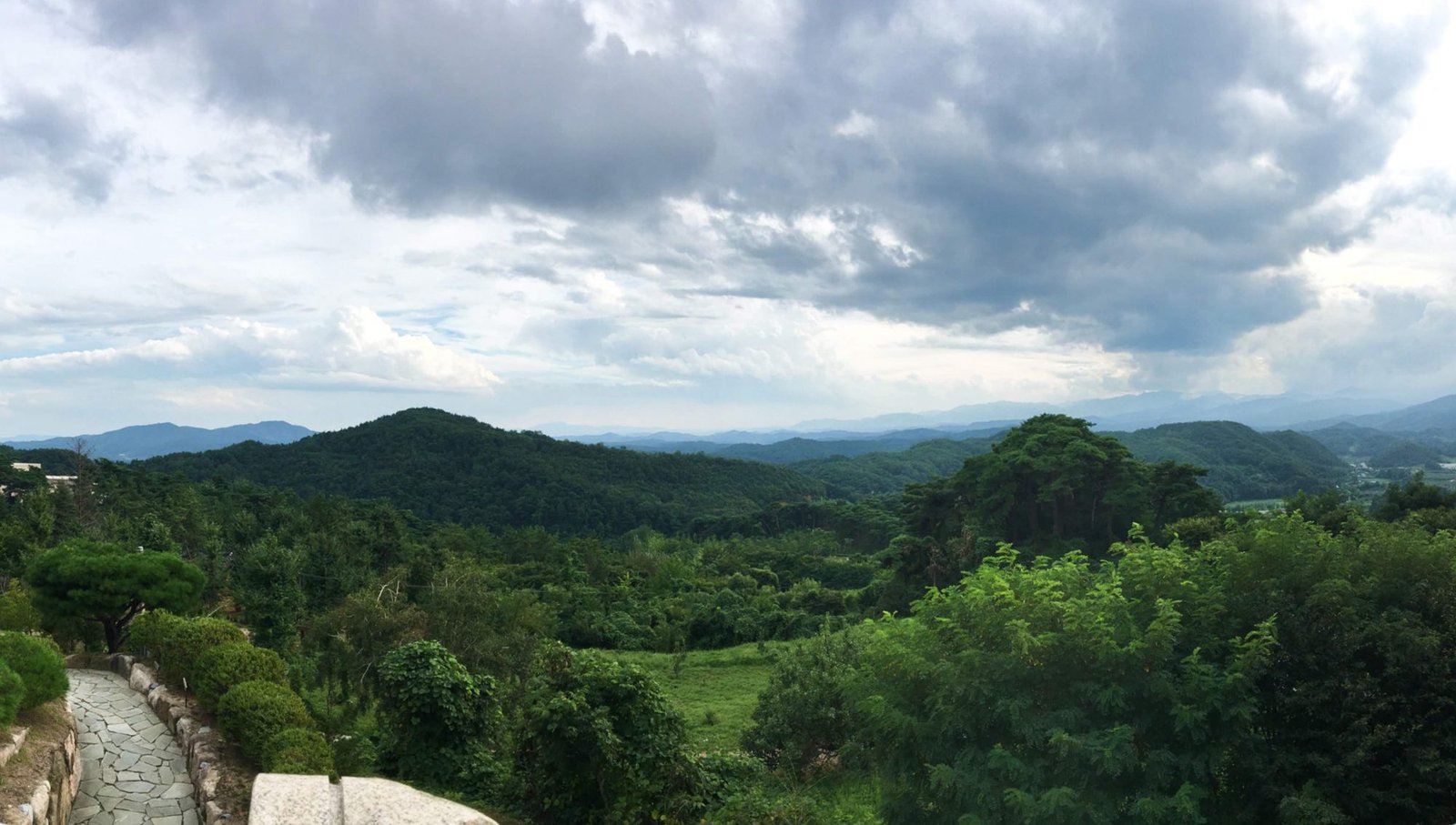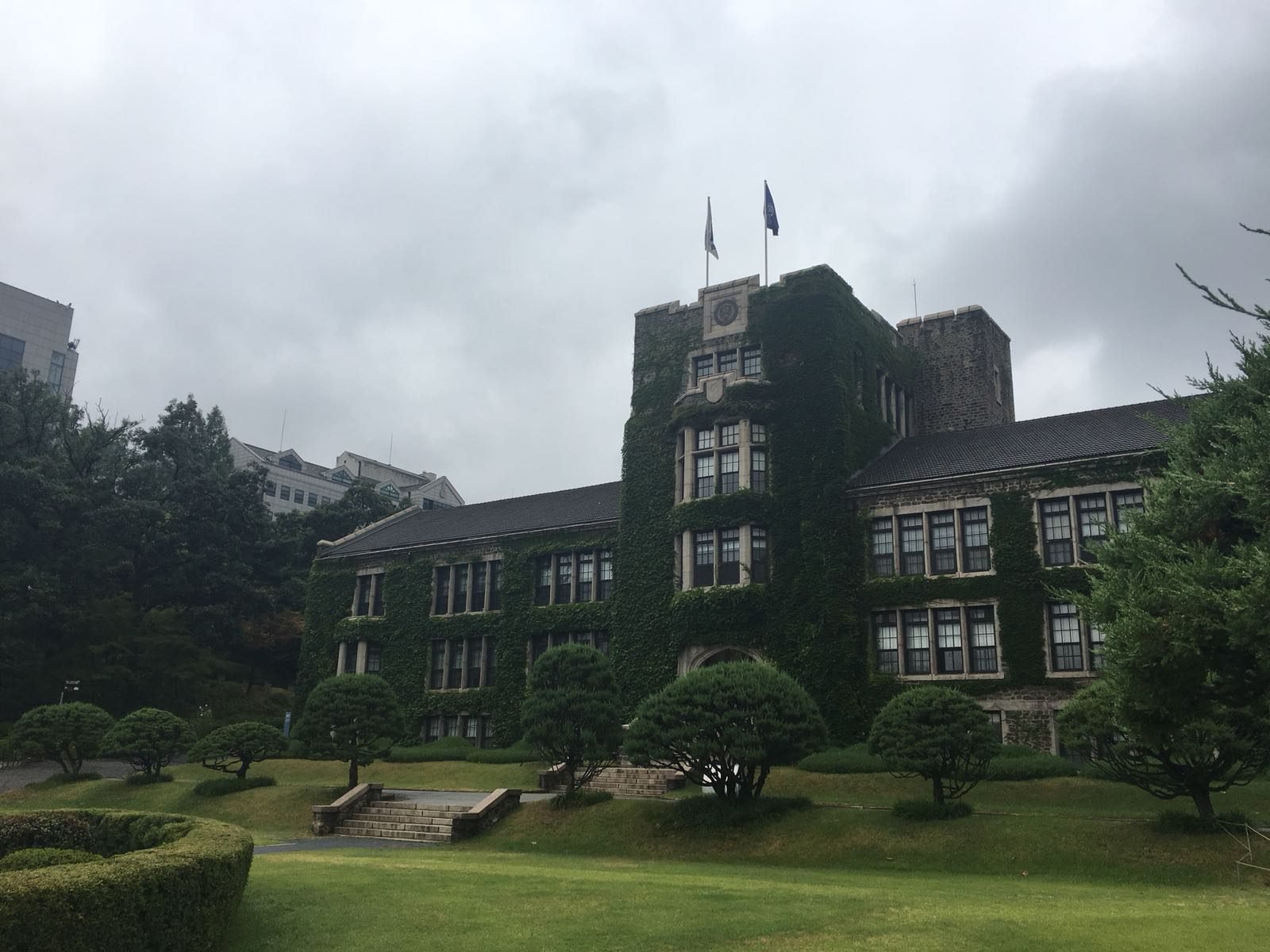My interesting experience this week was navigating life as a “normal” college student. The week itself was relatively uneventful, but the beginning of classes brought with it a new set of experiences and challenges. Being a student at a civilian university in South Korea is vastly different from being a Midshipman at the U.S. Naval Academy. At Yonsei University, there is no morning quarters or noon meal formation; meals here can be eaten whenever one chooses at any number of cafeterias, or in downtown Seoul; there is no mandatory sports or study period, you must manage your fitness and studies on your own time; classes take place in large lecture halls or classrooms and do not begin and end with “attention on deck;” there is no prescribed uniform of the day, people wear whatever they’d like to; there are no room inspections, you can live in your own filth if you wish; freshman aren’t chopping down the halls and sounding off, they blend in with the rest of us; there is no taps or EOL, you just need to make sure you get to class on time. I have been given many freedoms to which I am unaccustomed after two years at USNA and, to be completely honest, I actually miss the discipline and routine.
The Yonsei University campus, being located right in the city of Seoul, is enormous. It is barely possible to get from class in the engineering building to class in the foreign language hall in the 10 minutes allotted, but I am reminded that I can (and probably should) sprint across campus since I am not in uniform. The campus is at the heart of four other college campuses and is the site of everything nightlife and popular culture in Seoul. There is something going on every single night, whether it’s a concert, street performers, album signings, beer festivals, movie premieres, or art shows. The campus is never not busy with people going about their academic routines or heading out for a night of entertainment, food, and drinking.

Classes at Yonsei are very different from those at USNA. Besides the lack of military decorum, the classes are generally very large and, consequently, far less interactive. The professors generally do not care whether you are awake or sleeping, paying attention or scrolling through your phone, and, in some cases, whether you are even there. Generally speaking, however, Korean students are extremely engaged and inquisitive. While I may not understand all of the questions asked or explanations given, there is certainly a strong sense of passion for learning and education.
The cafeterias and restaurants on campus are nice and the food is good, but it is definitely not King Hall. If I want to eat a meal with friends or by myself, we must first pay for our food (which is not all-you-can-eat), then find empty seats amidst the chaos of the meal hour. There are no anchor announcements, no special guests, and no dismissal bell. Everyone just does their own thing all the time, which is not necessarily bad, but it certainly lacks the sense of shared experience and purpose that characterizes much of the day-to-day life at USNA.
None of this to say that I am not having a great experience, because I absolutely am, it is just very different from what I am used to. After a week of classes and the civilian routine, it feels as though there is something missing in the shared experiences and camaraderie that comes from always being told what to do and where to go, and it has allowed me to appreciate the battle rhythm, structure, and mission of USNA that much more.

